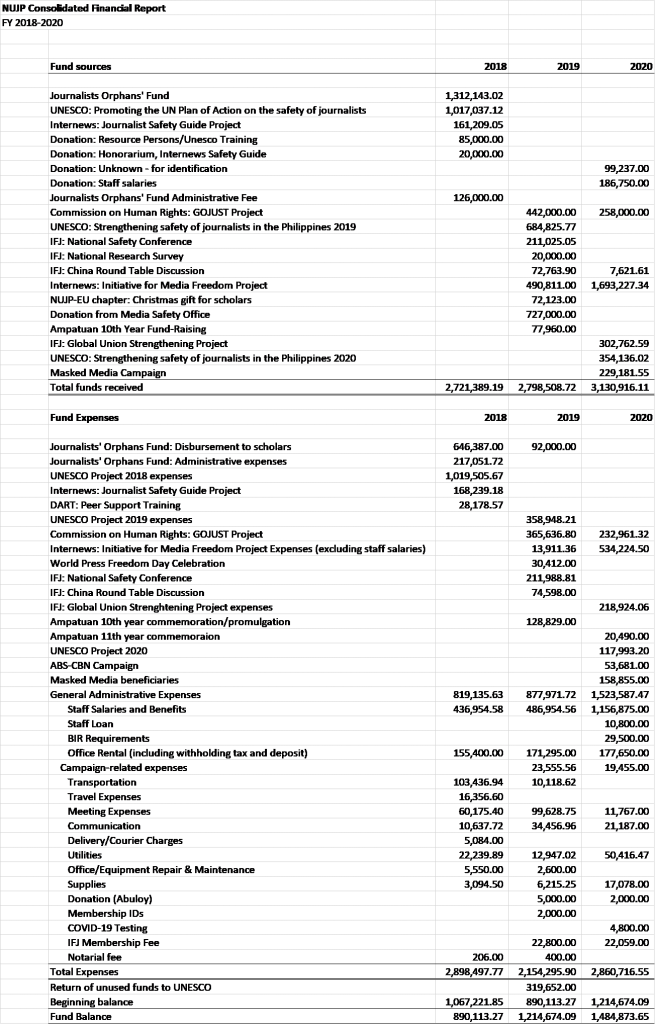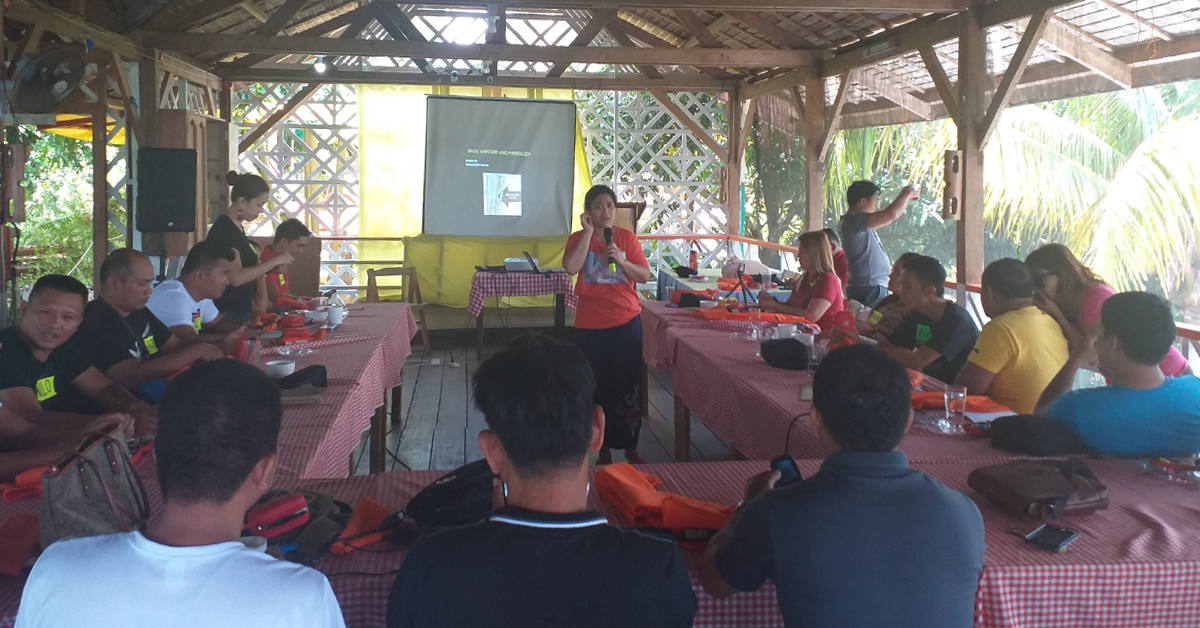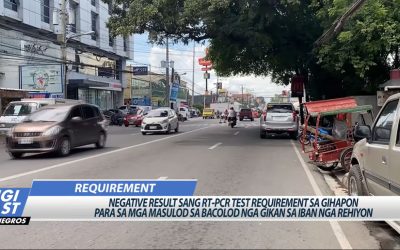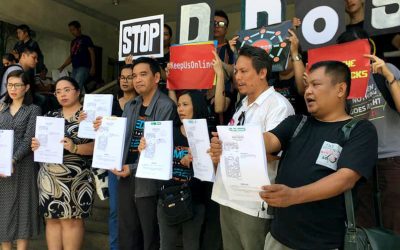Weathering the financial storm
by Jhoanna Ballaran
There is no theme more suitable to describe what the National Union of Journalists of the Philippines has gone through financially in the past three years than the theme of our 11th Congress: “Braving the Storm, Emerging Stronger.”
We braved a “financial storm” immediately after our 10th Congress in June 2018. From a near-deficit that year—with blinking red lights and all—we were able to bring the national office’s financial status back to the healthy green level by clinching several projects and conducting two successful fund-raising activities that left tremendous public impact. The NUJP directorate under the leadership of our chairman Nonoy Espina has strengthened old partnerships and forged new ones with organizations that support our mandate to promote the safety of journalists and better working conditions in our sector. These linkages have yielded projects and activities that you, our members, have participated in, such as the media safety trainings, peer support programs, round table discussions, research surveys, and the series of campaigns advocating for the promotion of press freedom and freedom of information.
While our organization and our profession were being attacked on all fronts, the NUJP stood firm and weathered the storm stirred by the adversaries of democracy and press freedom. We braved through a barrage of harassments and vilification that we have never seen before in the history of the Philippine press, and our partners helped us get through it by providing the resources we need to response to these kinds of attacks.
We emerged stronger.
In 2019, we secured a five-year project with our friends from Internews, the Initiative for Media Freedom, which aims to support a free and independent press to counter disinformation, promote political inclusion, and enhance democratic governance. The project, supported by the United States Agency for International Development, made this congress and safety conference possible, as well as the development of the journalist safety guide and the upcoming ethical journalism manual. It also slated a series of safety trainings, which, unfortunately, had to be postponed due to the coronavirus pandemic. Internews also provided support to improve our organization’s digital security capacity as a response to the successive denial distribution of service (DDOS) and brute force attacks since 2016. With their help, the NUJP and its members and staff have become more capable to respond to digital attacks.
We have also fortified our partnership with UNESCO, who has provided untiring support to NUJP’s media safety projects and programs in the past three years. They supported our series of nationwide safety trainings, as well as the peer support sessions for journalists in distress.
Our longtime friends from the International Media Support and the Asian Institute for Journalism and Communication have also given huge support to the NUJP’s Media Safety Office. Their assistance helped us establish a national media safety office, as well as four satellite offices nationwide—in Luzon, Visayas, in eastern and western Mindanao—significantly boosting our efforts to monitor and respond to attacks against the press.
And for the first time, we have officially partnered with the Commission on Human Rights under the Governance in Justice (GOJUST) Project, allowing us to train fellow journalists on reporting on human rights, and provide peer support to newsmen covering the drug war.
Of course, we will never forget our comrades from the International Federation of Journalists have been there with us in every step of the way. They have supported our Journalists’ Orphans Fund program, and several other projects on safety and welfare of journalists.
Fund-raising
Despite the persistent red-tagging and harassment, the NUJP became stronger and turned crisis into opportunity: last year, we launched the Masked Media campaign to raise funds for the Defense Fund for Filipino Journalists by selling the iconic red-hand mask, which was patronized not just by journalists but also the public in general.
For just three months, we were able to raise P229,181.55, making it the NUJP’s most successful fund-raising drive ever done. It enabled us to financially help 18 of our colleagues in distress and facing legal battles.
The year before, we also raised funds for the 10th anniversary of the Ampatuan Massacre by selling commemorative shirts and holding a one-night-only gig at Mow’s Bar in Quezon City, drawing about a hundred people and raising P77,960 funds, which were used to fund our campaign and activities leading to the massacre’s case promulgation in December 2020.
Actual income and expenses

From 2018 to 2020, the NUJP has received a total of P8.65 million—P2.7 million in 2018, P2.8 million in 2019, and P3.1 million in 2020. The bulk of these funds came from projects with Internews at P2.3 million and UNESCO at P2.1 million, and the funding for our scholarship program, the Journalists’ Orphans Fund, at P1.3 million. We have also received P1.2 million in donations.
Bulk of the funds went to the NUJP’s administrative expenses (including staff salaries, campaigns, and office rental) at P3.4 million; implementation of projects at P3.3 million; and scholarship program at P738 million.
Defend press freedom
The NUJP cannot underscore enough the importance of these funds and donations to our organization. Without these resources, we would not be able to reach and provide support to the vast number of Filipino journalists, most of them at risk, toiling hard to keep the people informed.
Thank you to our partners and our donors—Internews, UNESCO, the International Federation of Journalists, and the International Media Support and the several others who support us—in making our advocacies become reality. You all help us in making the Philippines a safer place for journalists.
MORE FROM DIARISTA 2021
We survived!
We survived! by Nonoy EspinaCongratulations, everyone. WE SURVIVED! In my more than three decades with our Union, never have I seen and experienced the levels of vilification and threat against the...
After layoffs, Bacolod journalists start digital news platform
After layoffs, Bacolod journalists start digital news platform by Marchel P. Espina, NUJP Bacolod chapterBACOLOD CITY — “I really don’t know,” this was all I could muster when Romeo Subaldo, the...
Alternative and campus press bear brunt of, endure government attacks
Alternative and campus press bear brunt of, endure government attacks by Raymund B. VillanuevaMANILA — The alternative media community and the campus press in the Philippines are being subjected to...







